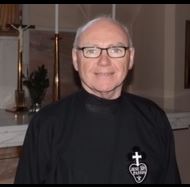This past week, along with many others, I have been recovering my memories of the 1966-67 Scottish Football season, which culminated in Celtic becoming the first British team to win the European Cup – just in case you hadn’t heard! I was 15 and enjoying the best feeling ever after following Celtic through some very barren years previously. I don’t think me and Hugh, who was 17 at the time, missed a home game all season, including the European Cup games. Most of all I remember the quarter-final against Vojvodina when Billy McNeill rose to meet Charlie Gallagher’s cross in the last minute to send us through to the semi.
It just so happened that on television that night they were showing the final episode of the long running series The Fugitive, which millions of people, including myself, had followed avidly for 120 episodes over 4 years. In those days before mobile phones and video recorders it would have been common to get on the bus after a big match and for people on the bus to be asking “what was the score?” The same happened that night, but I could also hear the Celtic supporters asking the people on the bus “was it the one-armed man?” For those who don’t know the one-armed man was the real killer of Doctor Richard Kimble’s wife, a murder for which he had been falsely accused. The detective in pursuit of him throughout the series, like Javert in pursuit of Valjean in Les Miserables, was Lieutenant Philp Gerard, and there had been rumours that he might in fact have been the killer – so all was revealed that night – but there were far more important places we had to be.
On the day of the final in Lisbon, we were let home early from school. Hugh went to watch the match in a cousin’s house; and while my mother hid in her room, and Patrick read his comics, having no interest in football whatsoever, I was on my own in front of the television going through the whole gamut of emotions as Celtic conceded a penalty early on and then pummelled Inter Milan for the rest of the game until Tommy Gemmell and Stevie Chalmers scored the goals that gave us the victory and sparked off delirious celebrations. Magic!
As an aftermath to that there is the true story of one of our priests, Father Celestine, who one day in 1968 walked down the avenue of the Passionist Monastery at Mount Argus in Dublin, and took a bus into town. For all anybody knew he was going shopping, but in fact he was on his way to Argentina for a football match. In his younger days he had lived, and was in fact ordained, in Argentina, and so he had offered his services, and somehow had them accepted by no less a man than Jock Stein, who later became a great friend, as a translator to Celtic for their World Club Championship match against Racing Club of Buenos Aires, which they were playing in as a result of having won the European Cup the previous year. Now, Father Celestine hadn’t asked permission of the Provincial to go, probably because he wouldn’t have got it; and he might just have gotten away with it except that the match was televised, and who at one stage did the camera zoom in on only Father Celestine, and who happened to be watching at the time only the Provincial, Father Valentine, and so when, at some later date,
Father Celestine came home, he had to face some serious music. I think what saved him was that the Provincial was also a big Celtic supporter. So, you never know who’s watching you!
Let’s finish with this footballers’ prayer:
Dear God, Thank you for this day. It is such a privilege and a blessing to play football. Please fill us with energy and passion as we push ourselves to do well. Help us all to compete with fairness in our hearts and minds and give us the grace to accept success or defeat. Protect our health and bodies as we challenge, tackle and run. Watch over all those present, the spectators young and old, and our nearest and dearest families. May this game and every game celebrate sport, and be enjoyable for everyone. Amen.

 RSS Feed
RSS Feed
